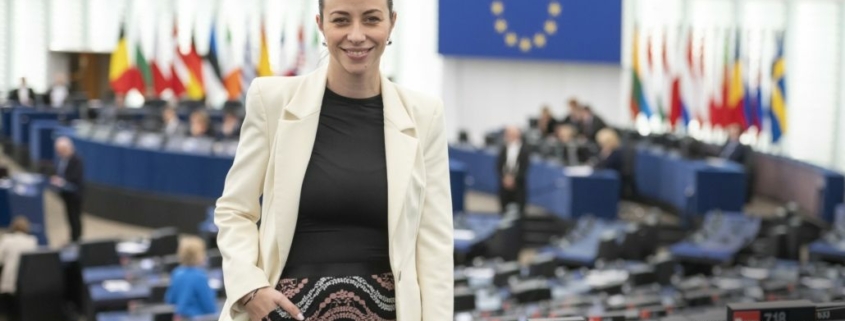On Wednesday, October 15, 2025, I organized an event in the Brussels Parliament with the aforementioned people to review the current state of play in the field of transparency of the EU’s operations, the legislative process, access to documents…
We jointly assessed that it is not exactly the best. Unfortunately. We all know the case of the correspondence between the President of the European Commission Ursula von der Leyen and the company Pfizer, which hid the personal messages in which she negotiated for vaccines from journalists. The New York Times journalists even initiated legal proceedings, and in the summer they won a lawsuit, but then received a response from the European Commission, saying that “we did not save these messages”.
Similarly, von der Leyen’s spokeswoman recently claimed that she deleted two messages from French President Emmanuel Macron because “she had no space on her phone”. What cynicism…
… but all this is basically just the tip of the iceberg. The EU’s institutional arrangements are such that the principles of transparency are still somewhat respected in the European Parliament, as the majority of our debates are public and recorded, while in the European Commission or the Council of the EU only PR is public.
Documents can be requested through the Ombudsman, but judging by what was said at the event, the Commission and the Council avoid it in every possible way, spend months “searching” for documents in the archives or sending so many documents that you can’t get through.
And that’s just the general part. The second is that the situation has only worsened recently. They propose legislation without impact assessments (these are key studies), they exclude the European Parliament from the process for the 150 billion euro borrowing mechanism (which is why we sued the European Commission, by the way), they combine different areas in one legislative package (these are the so-called Omnibuses), they exclude stakeholders from legally required consultations… in short, they do everything possible just to make the process even more opaque and resistant to criticism, to force proposals without real democratic control.
When Ursula von der Leyen agreed with US President Donald Trump that the EU would be hit with 15% tariffs, the Commission President also agreed with him to remove those small tariffs on industrial goods from the US in the EU. She agreed similarly for certain food products. There are no legally defined “impact assessments” of these proposals at all. Neither how much less revenue will there be, nor how much more goods will there be from the US. All to prevent Trump from doing even more damage – but the latter is still threatening new measures against the EU.
At the event, we agreed that we all – the European Parliament, the Ombudsman, NGOs and journalists – face similar challenges, where we often do not get the answers we need from the executive branch to do our job. But we also agreed that this will not stop us from doing our job.
- Irena
In addition to MEP Irena Joveva, who also organised the event, the discussion also included Lambros Papadias – Head of Cabinet of the European Ombudsman, Nick Aiossa – Director of Transparency International EU, Anne Friel – lawyer and Head of Environmental Rights and Rule of Law at ClientEarth, Staffan Dahllöf – freelance journalist from Denmark, and MEPs Cristina Guarda, Daniel Freund (Greens/EFA) and Evin Incir (S&D).




Leave a Reply
Want to join the discussion?Feel free to contribute!